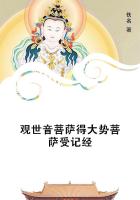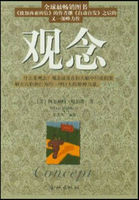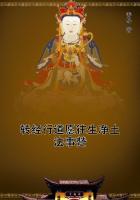For, believe me, the conditions of art are much simpler than people imagine. For the noblest art one requires a clear healthy atmosphere, not polluted as the air of our English cities is by the smoke and grime and horridness which comes from open furnace and from factory chimney. You must have strong, sane, healthy physique among your men and women. Sickly or idle or melancholy people do not do much in art. And lastly, you require a sense of individualism about each man and woman, for this is the essence of art - a desire on the part of man to express himself in the noblest way possible. And this is the reason that the grandest art of the world always came from a republic: Athens, Venice, and Florence -there were no kings there and so their art was as noble and simple as sincere. But if you want to know what kind of art the folly of kings will impose on a country look at the decorative art of France under the GRAND MONARQUE, under Louis the Fourteenth; the gaudy gilt furniture writhing under a sense of its own horror and ugliness, with a nymph smirking at every angle and a dragon mouthing on every claw. Unreal and monstrous art this, and fit only for such periwigged pomposities as the nobility of France at that time, but not at all fit for you or me. We do not want the rich to possess more beautiful things but the poor to create more beautiful things; for ever man is poor who cannot create. Nor shall the art which you and I need be merely a purple robe woven by a slave and thrown over the whitened body of some leprous king to adorn or to conceal the sin of his luxury, but rather shall it be the noble and beautiful expression of a people's noble and beautiful life. Art shall be again the most glorious of all the chords through which the spirit of a great nation finds its noblest utterance.
All around you, I said, lie the conditions for a great artistic movement for every great art. Let us think of one of them; a sculptor, for instance.
If a modern sculptor were to come and say, 'Very well, but where can one find subjects for sculpture out of men who wear frock-coats and chimney-pot hats?' I would tell him to go to the docks of a great city and watch the men loading or unloading the stately ships, working at wheel or windlass, hauling at rope or gangway. Ihave never watched a man do anything useful who has not been graceful at some moment of his labour: it is only the loafer and the idle saunterer who is as useless and uninteresting to the artist as he is to himself. I would ask the sculptor to go with me to any of your schools or universities, to the running ground and gymnasium, to watch the young men start for a race, hurling quoit or club, kneeling to tie their shoes before leaping, stepping from the boat or bending to the oar, and to carve them; and when he was weary of cities I would ask him to come to your fields and meadows to watch the reaper with his sickle and the cattle-driver with lifted lasso. For if a man cannot find the noblest motives for his art in such simple daily things as a woman drawing water from the well or a man leaning with his scythe, he will not find them anywhere at all. Gods and goddesses the Greek carved because he loved them; saint and king the Goth because he believed in them.
But you, you do not care much for Greek gods and goddesses, and you are perfectly and entirely right; and you do not think much of kings either, and you are quite right. But what you do love are your own men and women, your own flowers and fields, your own hills and mountains, and these are what your art should represent to you.
Ours has been the first movement which has brought the handicraftsman and the artist together, for remember that by separating the one from the other you do ruin to both; you rob the one of all spiritual motive and all imaginative joy, you isolate the other from all real technical perfection. The two greatest schools of art in the world, the sculptor at Athens and the school of painting at Venice, had their origin entirely in a long succession of simple and earnest handicraftsmen. It was the Greek potter who taught the sculptor that restraining influence of design which was the glory of the Parthenon; it was the Italian decorator of chests and household goods who kept Venetian painting always true to its primary pictorial condition of noble colour. For we should remember that all the arts are fine arts and all the arts decorative arts. The greatest triumph of Italian painting was the decoration of a pope's chapel in Rome and the wall of a room in Venice. Michael Angelo wrought the one, and Tintoret, the dyer's son, the other. And the little 'Dutch landscape, which you put over your sideboard to-day, and between the windows to-morrow, is' no less a glorious 'piece of work than the extents of field and forest with which Benozzo has made green and beautiful the once melancholy arcade of the Campo Santo at Pisa,' as Ruskin says.
Do not imitate the works of a nation, Greek or Japanese, Italian or English; but their artistic spirit of design and their artistic attitude to-day, their own world, you should absorb but imitate never, copy never. Unless you can make as beautiful a design in painted china or embroidered screen or beaten brass out of your American turkey as the Japanese does out of his grey silver-winged stork, you will never do anything. Let the Greek carve his lions and the Goth his dragons: buffalo and wild deer are the animals for you.
Golden rod and aster and rose and all the flowers that cover your valleys in the spring and your hills in the autumn: let them be the flowers for your art. Not merely has Nature given you the noblest motives for a new school of decoration, but to you above all other countries has she given the utensils to work in.
You have quarries of marble richer than Pentelicus, more varied than Paros, but do not build a great white square house of marble and think that it is beautiful, or that you are using marble nobly.















